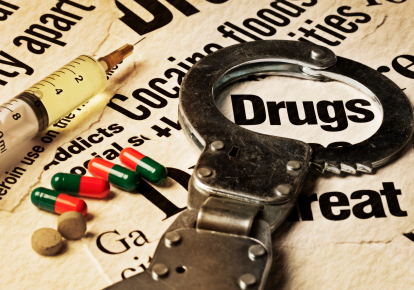European-style approach to VT’s drug crisis worth studying, lawmakers say

By Jon Street | Vermont Watchdog
NEW WAR ON DRUGS? Lawmaker suggests Western Europe could hold the solution to Vermont’s drug crisis
BURLINGTON, Vt. — One Western European country’s unconventional approach to handling drug addiction has a few Vermont lawmakers asking, “Could it work here”?
A group of lawmakers see it as a possible approach for dealing with Vermont’s “full blown heroin crisis,” as Gov. Peter Shumlin declared during his 2014 State of the State address, making national headlines.
Portugal decriminalized the possession and use of illicit drugs in 2001. Since then it has seen a variation of increases in decreases in drug use, depending on the age group. In addition, Portugal has spent more money on treatment programs to help people drug addicts.
Rep. Chris Pearson, P-Burlington; Rep. Linda Waite-Simpson, D-Essex Junction; and Rep. Tom Burditt, R-Rutland, are looking at the approach.
Pearson says the cost of providing treatment to people addicted to drugs is both cheaper and more effective. Pearson proposed the idea for a number of reasons. For one, Portugal has decriminalized modest possession for illicit substances and has started to treat it as a health issue, not a criminal issue.
The Burlington Progressive drew a comparison to when Vermont decriminalized small amounts of marijuana possession last year, which, he says, has already saved the state money in terms of law enforcement costs.
Decriminalizing illicit drugs, he argues, could have a similar effect.
“(Portugal) did it about a decade ago, and they’re seeing declining use, they’re seeing a decline in correction time, a pretty sharp decline related to drug offenses, then a great increase in people seeking treatment, which is really the productive path,” Pearson said.
The “War on Drugs” has been unsuccessful and stated the need for a new approach, Person said. But it remains unclear whether a law in Western Europe could work in this part of New England. Because questions still need to be answered, he’s not proposing drastic action anytime soon.
“This bill is a study. I’m not proposing that we do this. I’m proposing that we start asking questions of basically what’s going on in Portugal and has it worked and can it apply here”? he added.
The House Committee on Health Care is reviewing Pearson’s co-sponsored bill.
Pearson referred Vermont Watchdog to a study published by the Cato Institute, a libertarian think tank in Washington, D.C. Cato found that when Portugal enacted decriminalization, treatment programs — both in terms of funding levels and the willingness of the population to seek them — improved “substantially.”
The study also found that for Portuguese students 13 to 15, the lifetime prevalence rates, or the measure of how many people have consumed a particular drug in their lifetimes, decreased from 14.1 percent in 2001 — when the law was enacted — to 10.6 percent in 2006.
For those in grades 10 through 12, prevalence rates decreased from 27.6 percent in 2001 to 21.6 percent in 2006. Prevalence rates for psychoactive substances also decreased among students in those same age groups.
Among people 19 to 24, decriminalization resulted in a slight to mild increase in drug usage, including a rise in psychoactive substances among adults 19 to 24.
Vermont Watchdog asked the Burlington Police Department for comment, but our calls weren’t returned.
Contact Jon Street at jstreet@watchdog.org and find him on Twitter @JonStreet.







